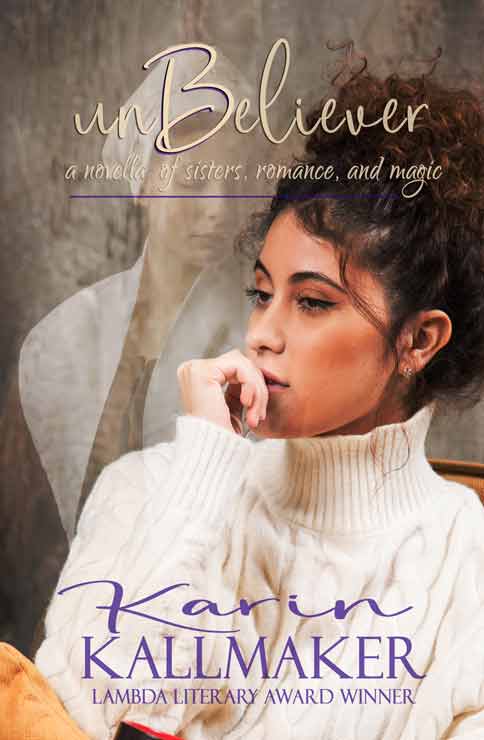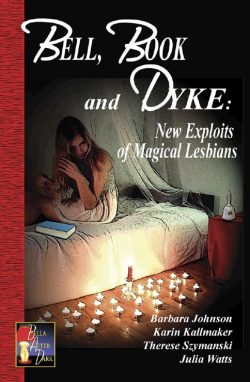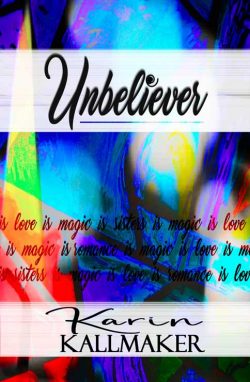From Chapter Three
I woke with a serious ache in my back. I supposed it was from hunching next to the fire for so long the previous evening. The power was back on, and it took only ten seconds to discern that I had twenty-seven minutes to get to my first class of the morning. Students hated eight a.m. classes only slightly more than their instructors did.
I woke Kylie with a gentle hug after I set a steaming cup of Irish Breakfast tea, a cookie and her morning meds on the table next to the sofa. “I’m terribly late – will you be okay?”
“I will when I’m not dizzy.” Kylie closed her eyes again. “You go on.”
I swore my way through my shower, appeased Bast, and bolted out the front door.
I had forgotten about the ice. My boots hit the first patch and I involuntarily skated the short length of my walk. My yelp of alarm warned off other pedestrians as I windmilled madly for balance. A man grabbed for me but missed and – certain I was about to beat Kylie to whatever happened after death – I spilled across the hood of a slow-moving Jeep.
The amazing thing was that I landed on my feet. Though I was shaking like a leaf, I had injured my pride more than any part of my body. Oh, my shoulder would tell me all about it for a week, but that I was alive seemed miraculous to me.
The driver of the Jeep clambered out with expressions of alarm, and I recognized my neighbor. She’d moved into the cottage next to mine at the beginning of winter break, but I’d seen little of her after the moving van had departed. Kylie sometimes reported on comings and goings and the return of the odd piece of misdelivered mail.
“Are you okay?” She put one arm around my shoulders, being about my height, and guided me toward the sidewalk. “That was some dance number.”
“I’m fine, really. It iced last night. It wasn’t your fault.” I thanked the man who’d tried to save me and assured everyone I really was okay. “I’m late for class…power outage… No alarm.”
“Can I drive you? Though I don’t know why I bother. It’s such a short walk.”
“Driving is actually not a good idea today.”
She shrugged, her eyes alight with mirth. “I grew up in Phoenix and have been hoping to find someone who could tell me things like that. Oh – stay still.”
She had the look of someone who had spotted a spider about to bite my jugular. I froze. She very carefully reached toward my left eyelid, however, and pulled her hand back to show me a fine fiber from my snow cap.
“It was headed right for your eye.” There was no mirth in her gaze now, but an intent, evaluative look. “Why don’t I put my car back and we can walk together. You can tell me about how to assess this white stuff all over the ground and I’ll convince myself I really didn’t break four of your ribs with my car.”
A few minutes later we hurried toward the university gates with our breath steaming the air in front of us. Credentials were quickly shared and absorbed in academic shorthand. Her summary was, “Lit. comp, no tenure in Phoenix. Perishing for lack of paper, but hope to put out next year.”
I answered with, “Humanities, tenure barely. Unspectacularly published…” I hesitated, but decided that I had no energy for academic posturing. I am what I am. “See that building over there? Gray roof? That’s the business and economics building. I’ve got the same last name as the robber baron who paid for it, so I am left alone to research what is of interest to me and very few others.”
“Which is?” She tramped without hesitation across the icy ground, her shiny new boots breaking the crust easily, though I guessed she weighed a good twenty pounds less than I did. The slender frame was discernible even under the winter wrappings. She looked perhaps in her early forties. I had yet to see her hair – it was tucked up inside her snow hat without a single tendril to give a clue.
“The intersection of religion and social code. The divergence of morality and scripture.”
She avoided a snow-covered hummock. “You mean why is thou shalt not kill a matter of morality and not religion?”
“It is a nearly universally held law, regardless of supporting scripture.”
“If you don’t count women and children and anyone deemed of lesser social value.” She had a tiny frown line between her light, finely sculpted brows.
“Religion can be surprisingly amoral when it comes to treatment of what is considered property. One can kill property in most religions. The differences are often in the definition of what a person is or isn’t, hence one can kill nonbelievers and infidels, too.”
“The current climate in our country must frustrate you.”
“I’m a historian. Though living history is often not as fun as reading about it.” Our steps matched in rhythm as we neared the social sciences building. “This is a phase.”
“Ah. So, all of history is one passing phase after another?”
“For the most part, yes.”
She smiled then, a perfectly readable I-know-something-you-don’t-know smile. I hate that. “When does a phase take on permanence?”
“Depends on your time frame. Humanity is a phase in the longevity of the planet.”
“But the planet is not?”
“It is in the time frame of the universe.”
She held the door open for me. “Then it really does matter where one sets one’s frame of reference, doesn’t it?”
I spied two of my grad students whisking into the classroom, no doubt immediately relieved to see I was not yet there. “A day trader sets it in seconds. A geologist in epochs.” I shrugged.
She waved in parting as I put my hand on the classroom door. “Our souls set the only timer that matters. Thanks for the walk.”
Hoping her last comment didn’t indicate cultish tendencies, I breezed into the classroom to apologize to my students and begin the working part of my day.
It was only later, feeling tenderness in my ribs and reflecting on a surprisingly intriguing conversation that I realized I did not know my neighbor’s name. I would have to ask Kylie when I got home.








